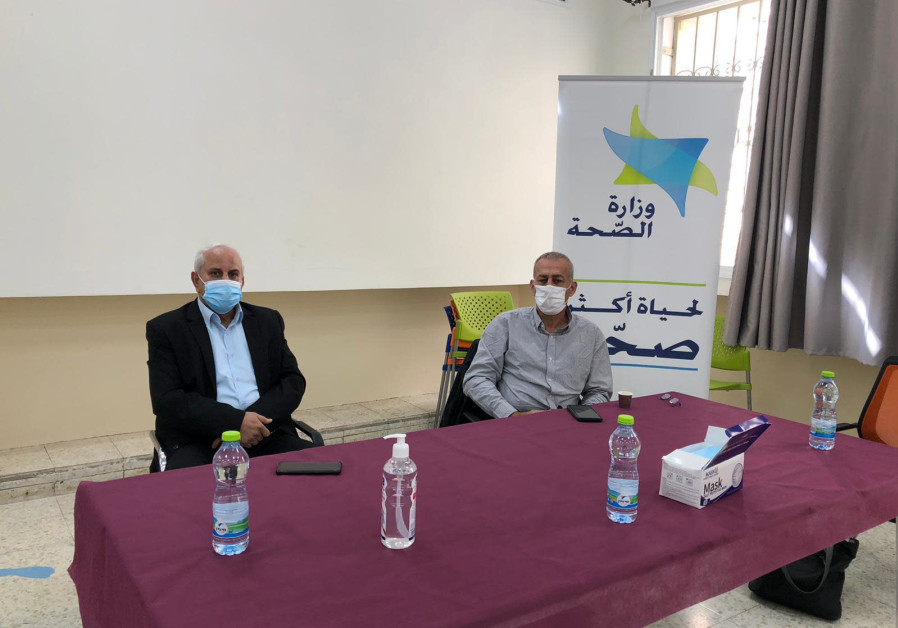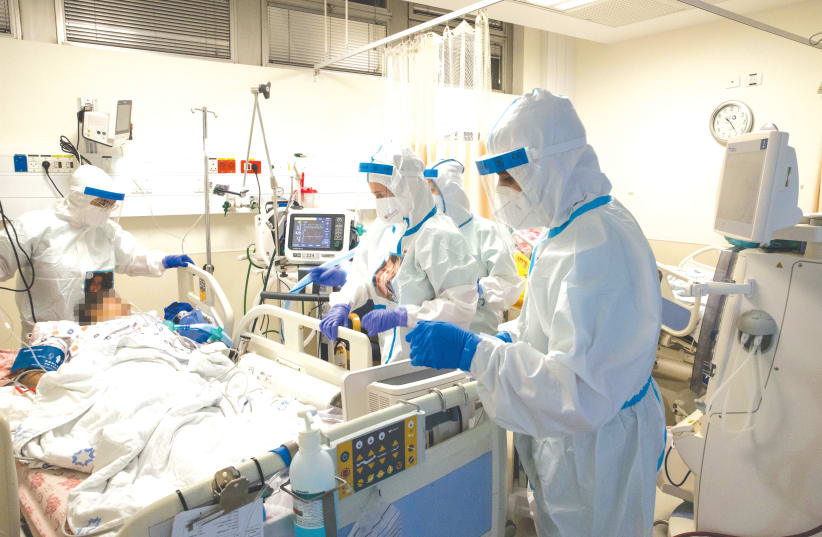The coronavirus cabinet is expected to convene Sunday afternoon after more days of rising infection and a report by the defense establishment that Israel is at the start of a third wave.Coronavirus commissioner Nachman Ash visited Arab towns on Saturday, noting that in those communities infections are rising among the younger people, too.Also, middle schoolers will return to school on Sunday – the last students to go back to their classrooms since the High Holy Day lockdown in September.The Health Ministry reported Friday that 1,506 new cases of coronavirus were diagnosed the day before. This was the ninth day in the last 10 in which more than 1,000 Israelis have tested positive.“It is not enough to prevent further relief,” wrote the Coronavirus National Information and Knowledge Center on Friday, saying that Israel should consider backtracking on some of what it has already implemented.Some 552 coronavirus patients were in the hospital, the Health Ministry reported, including 314 who are in serious condition - among them 97 who are intubated. This represents around a 20% increase in the number of people hospitalized in the past week. The number of patients in serious condition has surpassed 300 since November 22. The number of patients on ventilators also represents a significant spike.The death toll stood at 2,901.The total number of active patients as of Friday morning was 13,054 – some 1,830 from Jerusalem alone, representing 14% of active cases.The reproduction rate, also known as the “R,” was 1.21, meaning that every five infected people will infect six more.The knowledge center’s report showed that the spike in infection is clear and consistent and not a result of increased testing, as some might assume; 61,537 were tested on Friday. The average number of new daily patients is now over 1,000. This includes an increase in sick people over the age of 60, which by next week could result in a spike in serious patients or even deaths.“All of this indicates that we are on the verge of a third wave,” according to the report.
“For every two more days in which the existing infection rate is maintained, a full day of lockdown will be required,” the report cautioned.ASH VISITED the Arab towns of Mashhad and Shfaram on Saturday, the latter which has been labeled a red zone, and addressed the growing infection specifically among the Arab sector.

Health Ministry director-general Chezy Levy has also talked about enforcing a ban on Arab Israelis traveling to the Palestinian territories and vice versa, while maintaining closures or tight restrictions on red cities.However, it does not appear that health officials will recommend any new restrictions over the Hanukkah holiday, such as a night curfew or forbidding intercity travel. It is likely that Jewish families will be encouraged to celebrate the holiday with their nuclear families only, as Ash recommended to the Christians.The cabinet will also likely discuss the mall pilot program, which ends Sunday night. Given the scenes of gathering, long lines and maskless shoppers, health officials are unlikely to recommend that it continue.In contrast, Economy Minister Amir Peretz will push for more malls to open.Peretz said in a statement Saturday night that the professionals who oversaw the pilot on behalf of his ministry found that the pilot was effective and all of the malls should be allowed to open.He said he will accept the recommendation of his ministry, however, that 40 malls should open on Monday under “significant and uncompromising enforcement” of the rules. “A mall that does not meet the guidelines, will be closed – and even closed immediately, as will stores inside the mall.”Finally, it looks like vaccines will arrive and start being administered in Israel before the end of the month, Health Minister Yuli Edelstein confirmed in an interview on N12 Saturday night. He said that he and Prime Minister Benjamin Netanyahu have agreed not to vaccinate anyone until the vaccine candidates receive approval by the US Food and Drug Administration.However, he said that once approved, he and the prime minister are considering being the first people inoculated to prove to the country that they believe the vaccines are safe.
